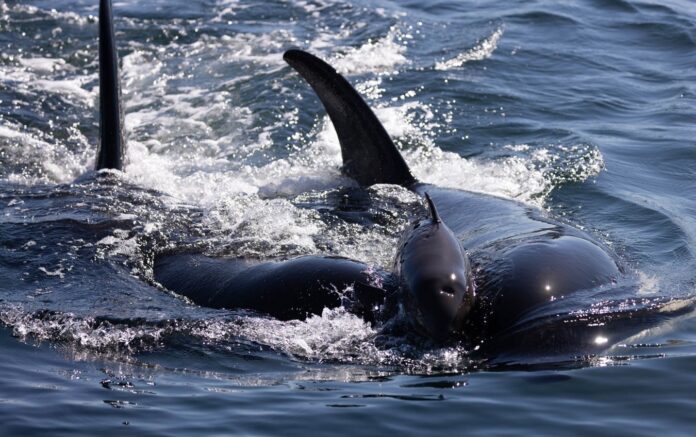The whales are thought to exhibit this behavior as a sign of social play, hunting practices and mismothering behavior
By KATIE HELLMAN — science@theaggie.org
A recent study published in Marine Mammal Science investigates why killer whales have been showing aggressive behavior towards porpoises without intending to eat them.
“We considered several hypotheses for this behavior, the most likely of which include a form of play with social or developmental benefits, practice hunting, and/or displaced epimeletic (mismothering) behavior for reproductive females,” the study reads.
The research is led by Sarah Teman of SeaDoc Society, a program of the UC Davis School of Veterinary Medicine, as well as Deborah Giles of Wild Orca.
Whales are intelligent animals known to enjoy participating in social behaviors, like playing with other species, as a means of exploring their surroundings and satisfying their curiosity. Confronting porpoises to the point of killing them, however, might signify that their behavior is a way to hone their skills needed to catch prey. They could also be showing epimeletic behavior, which females frequently display to care for perceived ill or injured creatures.
“Mismothering behavior — also known as ‘displaced epimeletic behavior’ to scientists — might be due to their limited opportunities to care for young,” Giles said in an interview with UC Davis. “Our research has shown that due to malnutrition, nearly 70 percent of Southern Resident killer whale pregnancies have resulted in miscarriages or calves that died right away after birth.”
Southern Resident killer whales are endangered, with their population currently hovering at around 75 individuals. Their main food is chinook salmon, a species that is also endangered.
Teman, Giles and other researchers studied 78 events that had taken place between 1962 and 2020 where killer whales had been documented harassing porpoises. Although these incidents have been observed for decades, they appear to be increasing in frequency with alarming impacts on the safety of both porpoises and mariners.
Other populations of killer whales have exhibited similar playful behaviors; earlier this year, whales on the Iberian Peninsula came into physical contact with boats off the coast of Portugal and Spain, even sinking them at times. Although it’s possible the whales meant no harm, their behavior has posed threats to mariners’ safety and presents conflicts of interest regarding conservation efforts for the Iberian whale species.
“[Whales] are incredibly curious and playful animals and so this might be more of a play thing as opposed to an aggressive thing,” Giles told Live Science.
Written by: Katie Hellman — science@theaggie.org




